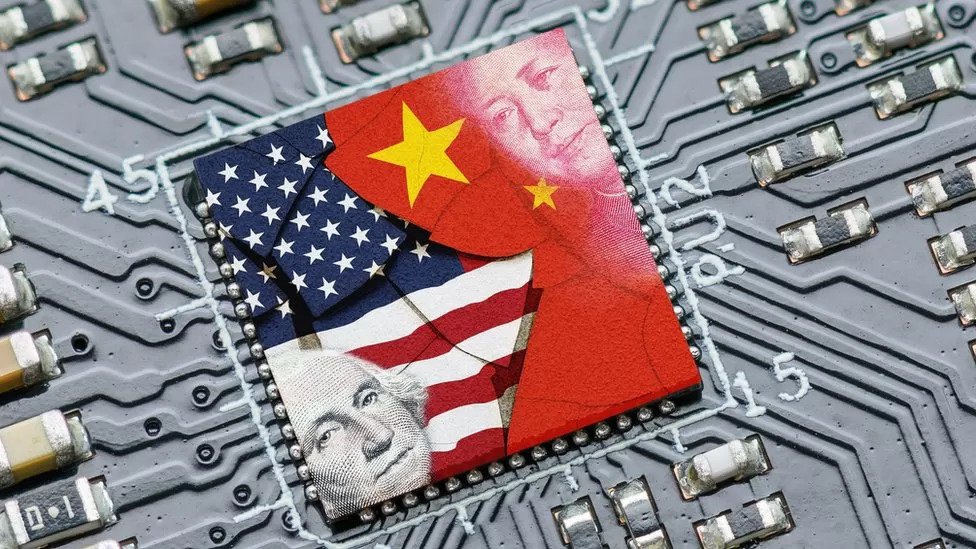The Biden administration has announced new restrictions on exports of advanced chips to China, including two made-for-China chips from Nvidia.
US chip stocks fell as the curbs also hit Advanced Micro Devices and Intel.
The curbs are aimed at closing loopholes that became apparent after the US announced export curbs on chips last October.
They are designed to prevent China’s military from importing advanced semiconductors or equipment.
Nvidia has said in a filing that the new export restrictions will block sales of two high-end artificial intelligence chips it created for the Chinese market – A800 and H800. It said that one of its gaming chips will also be blocked.
Although the curbs also affect other chip makers, analysts believe Nvidia will be hit the hardest because China accounts for up to 25% of its revenues from data centre chip sales. Nvidia’s shares, which are considered a star stock, fell by as much as 4.7% in the wake of the announcement.
The Semiconductor Industry Association, which represents 99% of the US semiconductor industry by revenue, said in a statement that the new measures are “overly broad” and “risk harming the US semiconductor ecosystem without advancing national security as they encourage overseas customers to look elsewhere”.
A spokesperson for the Chinese embassy also said that it “firmly opposes” the new restrictions, which also target Iran and Russia and go into effect in 30 days.
Two months ago, China retaliated by srestricting exports of two materials, gallium and germanium, which are key to the semiconductor industry.
China is by far the biggest player in the global supply chain of gallium and germanium. It produces 80% of the world’s gallium and 60% of germanium, according to the Critical Raw Materials Alliance (CRMA) industry body.
The materials are “minor metals”, meaning that they are not usually found on their own in nature, and are often the by-product of other processes.
Besides the US, both Japan and the Netherlands – which is home to key chip equipment maker ASML – have also imposed chip technology export restrictions on China.
The constant tit-for-tat between the world’s two biggest economies has raised concerns over the rise of so-called “resource nationalism” when governments hoard critical materials to exert influence over other countries.








